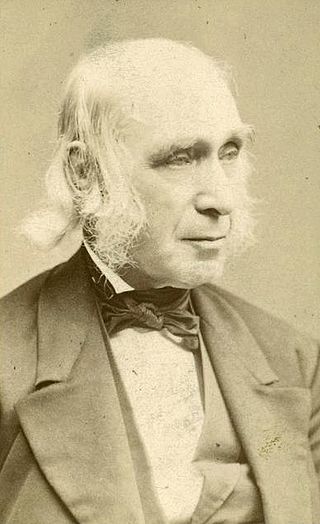
Amos Bronson Alcott was an American teacher, writer, philosopher, and reformer. As an educator, Alcott pioneered new ways of interacting with young students, focusing on a conversational style, and avoided traditional punishment. He hoped to perfect the human spirit and, to that end, advocated a plant-based diet. He was also an abolitionist and an advocate for women's rights.

Louisa May Alcott was an American novelist, short story writer, and poet best known for writing the novel Little Women (1868) and its sequels Good Wives (1869), Little Men (1871), and Jo's Boys (1886). Raised in New England by her transcendentalist parents, Abigail May and Amos Bronson Alcott, she grew up among many well-known intellectuals of the day, including Margaret Fuller, Ralph Waldo Emerson, Nathaniel Hawthorne, and Henry David Thoreau. Encouraged by her family, Louisa began writing from an early age.

Harvard is a town in Worcester County, Massachusetts, United States. The town is located 25 miles west-northwest of Boston, in eastern Massachusetts. It is mostly bounded by I-495 to the east and Route 2 to the north. A farming community settled in 1658 and incorporated in 1732, it has been home to several non-traditional communities, such as Harvard Shaker Village and the utopian transcendentalist center Fruitlands. It is also home to St. Benedict Abbey, a traditional Catholic monastery, and for over seventy years was home to Harvard University's Oak Ridge Observatory, at one time the most extensively equipped observatory in the Eastern United States. It is now a rural and residential town noted for its public schools. The population was 6,851 at the 2020 census.

Abigail May Alcott Nieriker was an American artist and the youngest sister of Louisa May Alcott. She was the basis for the character Amy in her sister's semi-autobiographical novel Little Women (1868). She was named after her mother, Abigail May, and first called Abba, then Abby, and finally May, which she asked to be called in November 1863 when in her twenties.

Little Men: Life at Plumfield with Jo's Boys, is a children's novel by American author Louisa May Alcott (1832–1888), which was first published in 1871 by Roberts Brothers. The book reprises characters from her 1868–69 two-volume novel Little Women, and acts as a sequel in the unofficial Little Women trilogy. The trilogy ends with Alcott's 1886 novel Jo's Boys, and How They Turned Out: A Sequel to "Little Men". Alcott's story recounts the life of Jo Bhaer and her husband as they run a school and educate the various children at Plumfield. The teaching methods used at Plumfield reflect transcendentalist ideals followed by Alcott's father, Bronson Alcott. Book education is combined with learning about morals and nature as the children learn through experience. Paradoxes in the story serve to emphasize Alcott's views on social norms.

The Wayside is a historic house in Concord, Massachusetts. The earliest part of the home may date to 1717. Later it successively became the home of the young Louisa May Alcott and her family, who named it Hillside, author Nathaniel Hawthorne and his family, and children's writer Margaret Sidney. It became the first site with literary associations acquired by the National Park Service and is now open to the public as part of Minute Man National Historical Park.
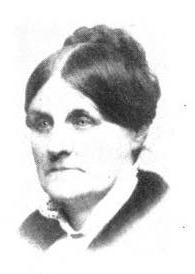
Abigail "Abba" Alcott was an American activist for several causes and one of the first paid social workers in the state of Massachusetts. She was the wife of transcendentalist Amos Bronson Alcott and mother of four daughters, including Civil War novelist Louisa May Alcott.
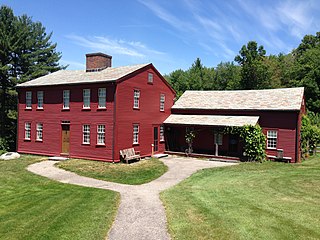
Fruitlands was a utopian agrarian commune established in Harvard, Massachusetts, by Amos Bronson Alcott and Charles Lane in the 1840s and based on transcendentalist principles. An account of its less-than-successful activities can be found in Transcendental Wild Oats by Alcott's daughter Louisa May Alcott.
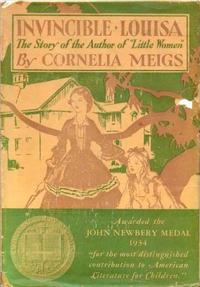
Invincible Louisa is a biography by Cornelia Meigs that won the Newbery Medal and the Lewis Carroll Shelf Award. It retells the life of Louisa May Alcott, author of Little Women.

Eight Cousins, or The Aunt-Hill was published in 1875 by American novelist Louisa May Alcott. It was originally published as a serial in St. Nicholas and is part of the Little Women Series. It is the story of Rose Campbell, who has been recently orphaned and resides with her maiden great aunts, the matriarchs of her wealthy family near Boston, until her guardian, Uncle Alec, returns from abroad to take over her care. Through his unorthodox theories about child-rearing, she becomes happier and healthier while finding her place in her family of seven boy cousins and numerous aunts and uncles. She also makes friends with Phebe, her aunts' young housemaid. Eight Cousins received both favorable and unfavorable reviews in the early days of its publication. Reviews focused on Alcott's stylistic tone as well as the portrayal of characters and realism. In Eight Cousins, Alcott discusses transcendental education, child-rearing, and social differences.
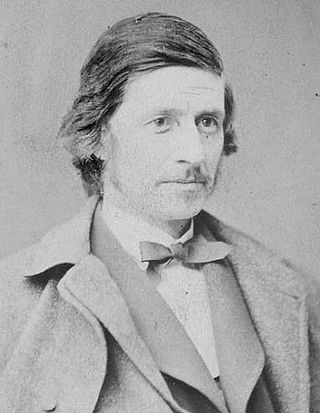
Franklin Benjamin Sanborn was an American journalist, teacher, author, reformer, and abolitionist. Sanborn was a social scientist and memorialist of American transcendentalism who wrote early biographies of many of the movement's key figures. He founded the American Social Science Association in 1865 "to treat wisely the great social problems of the day." He was a member of the so-called Secret Six, or "Committee of Six", which funded or helped obtain funding for John Brown's Raid on Harpers Ferry; in fact, he introduced Brown to the others. A recent scholar describes him as "humorless."

William Taylor Adams, pseudonym Oliver Optic, was an academic, author, and a member of the Massachusetts House of Representatives.
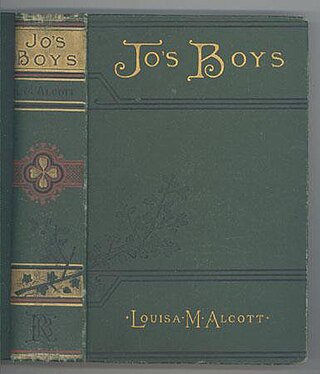
Jo's Boys, and How They Turned Out: A Sequel to "Little Men" is a novel by American author Louisa May Alcott, first published in 1886. The novel is the final book in the unofficial Little Women series. In it, the March sisters' children and the original students of Plumfield, now grown, are caught up in real world troubles as they work towards careers and pursue love.

Charles Lane was an English-American transcendentalist, abolitionist, and early voluntaryist. Along with Amos Bronson Alcott, he was one of the main founders of Fruitlands and a vegan.

Work: A Story of Experience, originally serialized and first published in book form in 1873, is a semi-autobiographical novel by Louisa May Alcott, the author of Little Women. It is set in the times before and after the American Civil War. The protagonist, Christie Devon, leaves her home to make a living on her own. She goes from job to job, eventually marries, and becomes a social activist when her husband dies. Alcott wrote the book over the course of several years and based it in part on her own experiences as a young woman in the workforce. Following publication, contemporary critical reviews were mixed, with some reviewers praising the plot's execution and others criticizing it. The novel's themes include women's participation in the workforce, domesticity and equality, personal independence, social reform, and mental health.

Joseph Michael Palmer was a member of the Fruitlands commune and an associate of Louisa May Alcott and other Transcendentalists.
Behind a Mask, or A Woman's Power is a novella written by American author Louisa May Alcott. The novella was originally published in 1866 under the pseudonym of A. M. Barnard in The Flag of Our Union. Set in Victorian era Britain, the story follows Jean Muir, the deceitful governess of the wealthy Coventry family. With expert manipulation, Jean Muir obtains the love, respect, and eventually the fortune of the Coventry family.

Alcott House in Ham, Surrey, was the home of a utopian spiritual community and progressive school which lasted from 1838 to 1848. Supporters of Alcott House, or the Concordium, were a key group involved in the formation of the Vegetarian Society in 1847.
Eden's Outcasts: The Story of Louisa May Alcott and Her Father is a 2007 biography by John Matteson of Louisa May Alcott, best known as the author of Little Women, and her father, Amos Bronson Alcott, an American transcendentalist philosopher and the founder of the Fruitlands utopian community. Eden's Outcasts won the 2008 Pulitzer Prize for Biography.

Clara Endicott Sears (1863–1960) was a New England author, preservationist, and philanthropist.



















